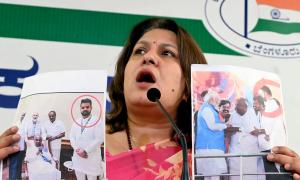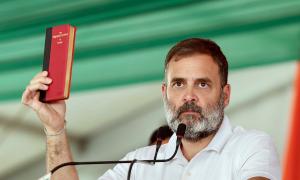The agreement by Republicans and Democrats on the stopgap extension means that House of Representatives, which earlier voted to extend the same law by four years, will have to endorse it again. Senate lawmakers are hopeful that their colleagues will do it before the law expires on December 31. The White House, after hanging tough on any partial or short-term extensions of the Patriot Act, applauded the move in the Senate.
"I appreciate the Senate for working to keep the existing Patriot Act into law through next July despite boasts last week by the Democratic leader that he had blocked the Act," President George W Bush said in a statement.
"No one should be allowed to block the Patriot Act to score political points and I am grateful the Senate rejected that approach." It has not gone unnoticed that the Bush White House was not willing to take any short-term measures on the Patriot Act and was working hard to defeat any filibuster in Senate. In fact, as late as Wednesday afternoon, the White House was calling on Senators of both parties to get the Act extended for its full agreed-upon duration of four years. The refrain was that the President "is not interested" in signing any short-term extension.
When the six-month extension was passed finally Wednesday night, the White House was left with no option other than welcome the move of the Senate.
The provisions of the Patriot Act were troubling by itself to many civil rights groups and activists. Their contention had always been that the Act gave the government too much power in the conduct of surveillance. But what added fuel to the fire in the Senate was the embarrassing revelation that the White House had secretly directed the National Security Agency to eavesdrop on American citizens and others within the United States. That hardened the position of Democrats who argued that the President had sidestepped his constitutional and statutory role.








More from rediff